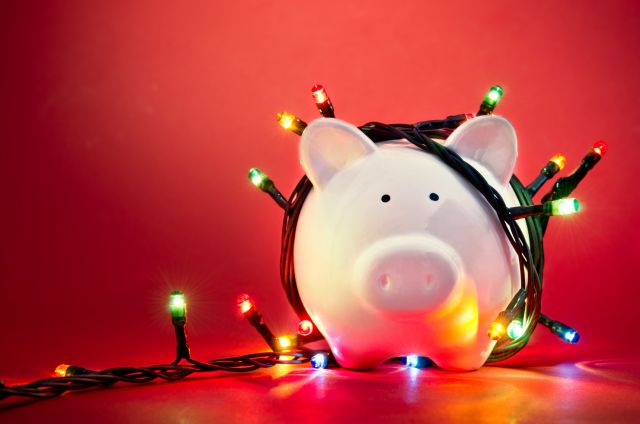Updated on June 9, 2022.
In a perfect world, the holidays would be stress-free—a joyful time spent making memories with loved ones. But when you’re strapped for cash, the season may seem like more of a burden than a celebration.
Year after year, in survey after survey, a lack of money is named one of the biggest holiday stressors. When it’s chronic or untreated, stress can contribute to depression, gastrointestinal problems, high blood pressure, and even heart problems. So, how can you get a handle on your spending worries?
Spend strategically
Cutting back on holiday money stress starts with managing your cash flow. Begin by creating a realistic budget that includes all your potential spending, from family gifts to stamps for holiday cards. Use a list when you shop, so you’re not tempted to buy extra items. Track every purchase on paper or with a smartphone app. Save all your budgeting and spending information to give you a good reference for next year.
If you can, begin shopping early. Many good deals emerge at the beginning of the season, and last-minute shopping can make it easier to splurge. Pay with cash at stores, since credit cards may tempt you to overspend. Online, search for coupon codes before purchasing anything; they can save you big bucks. Note return policies and hang on to both digital and paper receipts, just in case.
Traveling? Book flights and hotels well ahead of time. Look into homestays or even short-term rentals, which may be more affordable. Ship gifts to or shop at your destination to cut back on baggage fees.
Do things differently
While it’s important to uphold traditions, it’s okay to change things up, too. When you’re pinched for cash or feeling anxious, scale down or try the holidays another way.
To start, speak with family and friends about your money limitations—they might be fine with cutting back. If you’re still on the hook for multiple gifts, propose limiting the number by drawing names from a hat or doing a white elephant swap. Baked goods, homemade presents, or donating your time may also be options. No busy parent has ever turned down free babysitting.
Try easing up on your obligations, too. Endless seasonal events and fundraisers often come at a mental and financial cost. Stick with the ones you love and bow out of those that may add to your stress. Hosting something yourself? Ask others to pitch in.
Finally, when you find yourself overwhelmed by money anxiety, take a break. Go for a walk, have coffee with a friend, or get some rest. Take the focus off the holidays for a little while. Avoid drugs or drinking excessively, which can lead to more problems in the long run. Reach out to loved ones for support. If your stress lasts beyond the holidays or makes it difficult to function, speak with a healthcare provider for help.







